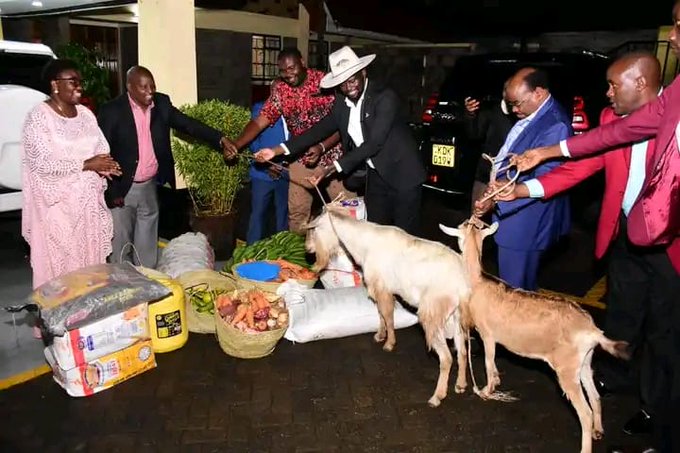The impeachment process against Governor Mwangaza was not a spur-of-the-moment decision. It was the culmination of a long-standing feud between her and the Meru County Assembly, which has tried to impeach her several times. The last impeachment motion was built on accusations that she had engaged in gross misconduct, including allegations of irregular procurement processes, nepotism in county appointments, and mismanagement of county resources.
Kinya, the deputy majority leader who tabled the motion, argued that Mwangaza’s leadership had brought the county to the brink of chaos. She claimed that the governor’s actions had not only violated the law but also eroded public trust in the county’s administration. According to Kinya, the governor’s behavior was detrimental to the development of Meru, and her continued stay in office would only lead to further instability.
The motion passed with a clear majority, as 49 MCAs voted in favour, while 17 opposed, and three abstained. The impeachment process immediately thereafter moved to the Senate, which will decide whether to uphold the County Assembly’s decision or dismiss it. The Senate has already voted to try her impeachment through a Plenary session, which will be attended by all members and she will be allowed to defend herself as the Assembly prosecutes. That upcoming Senate session is being closely watched, as it could set a precedent for how future impeachment cases are handled in Kenya.
Mwangaza’s Political Maneuvering
Facing yet another impeachment, Governor Mwangaza has not remained passive. In an attempt to garner support and stave off her ouster, Mwangaza has reached out to political allies, most notably Nyeri Governor Mutahi Kahiga. Reports indicate that Mwangaza visited Governor Kahiga at his home on Wednesday night, bringing gifts of goats, potatoes, and other farm produce, in an effort to persuade him to intervene on her behalf with senators loyal to Deputy President Rigathi Gachagua.
This move highlights the intricate political alliances at play in Kenyan politics, where support from influential figures can make or break a politician’s career. Mwangaza’s efforts are seen as a desperate bid to rally support from other governors and key political players who can influence the Senate’s decision. However, these attempts have also drawn criticism, with some accusing Mwangaza of trying to buy her way out of trouble instead of addressing the root causes of the allegations against her.
The Senate’s involvement in this impeachment case is critical. On August 14, 2024, Senate Speaker Amason Kingi convened a special session to discuss the way forward for Mwangaza’s impeachment. There was a heated debate among senators about whether the case should be handled by a select committee of 11 members or by the entire Senate in a plenary session. Ultimately, the majority of senators voted to handle the case through a plenary session, ensuring that all members of the Senate will participate in the deliberations and the final vote .
The decision to opt for a plenary session was driven by concerns that a smaller committee might be susceptible to external influences, potentially leading to a biased outcome. Some senators argued that a plenary session would provide a more transparent process, allowing the public to see how their elected representatives handle the matter. However, others warned that the plenary route could result in a more politicized process, with senators potentially voting based on party loyalties rather than the merits of the case.
Governor Mwangaza’s impeachment is not just a local issue; it has national significance. Her case is being watched closely as it could set a precedent for how governors are held accountable in Kenya. The outcome could also influence the future of devolution in the country, as it raises questions about the balance of power between county assemblies and governors.
Moreover, Mwangaza’s situation sheds light on the broader issue of corruption and governance in Kenya. The allegations against her, if proven true, would underscore the need for stronger checks and balances at the county level. However, the fact that Mwangaza has survived two previous impeachment attempts suggests that there may be deeper political dynamics at play, including the role of influential political figures who have the power to sway outcomes in the Senate.
Some analysts believe that the Senate’s decision in this case could either reinforce or undermine public confidence in Kenya’s democratic institutions. If the Senate upholds the impeachment, it could be seen as a victory for accountability and the rule of law. On the other hand, if the Senate dismisses the charges, it could fuel perceptions that political corruption is tolerated at the highest levels of government.
As the Senate prepares to deliberate on Governor Mwangaza’s fate, the people of Meru and the rest of the country are left to wonder what the future holds. If the Senate upholds the impeachment, Mwangaza will be removed from office, giving way to her deputy to take over for the remainder of the term and she would not be eligible to hold public office thereafter. However, if the Senate dismisses the charges, Mwangaza will continue as governor, but her political future will remain uncertain, given the turbulent nature of her tenure so far.
